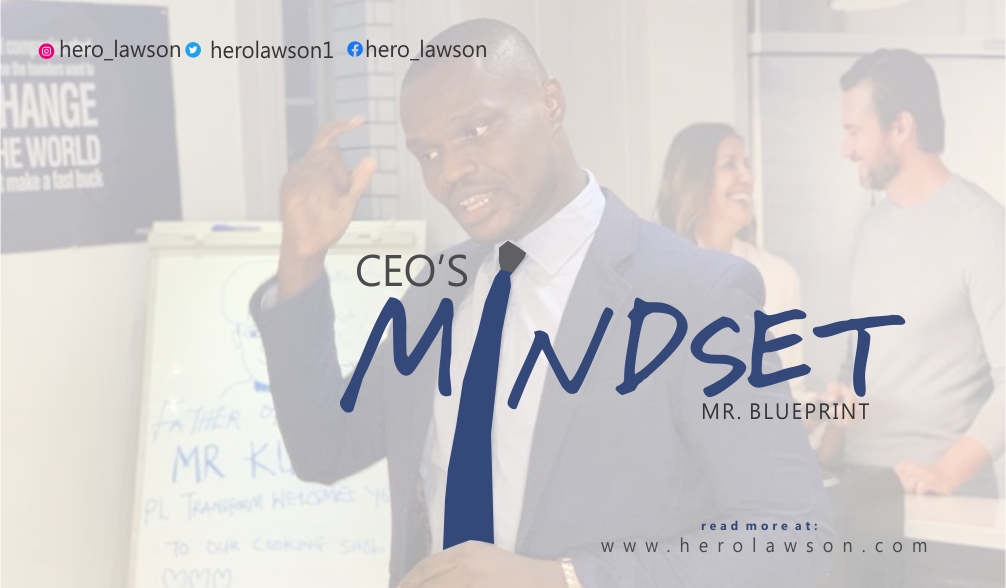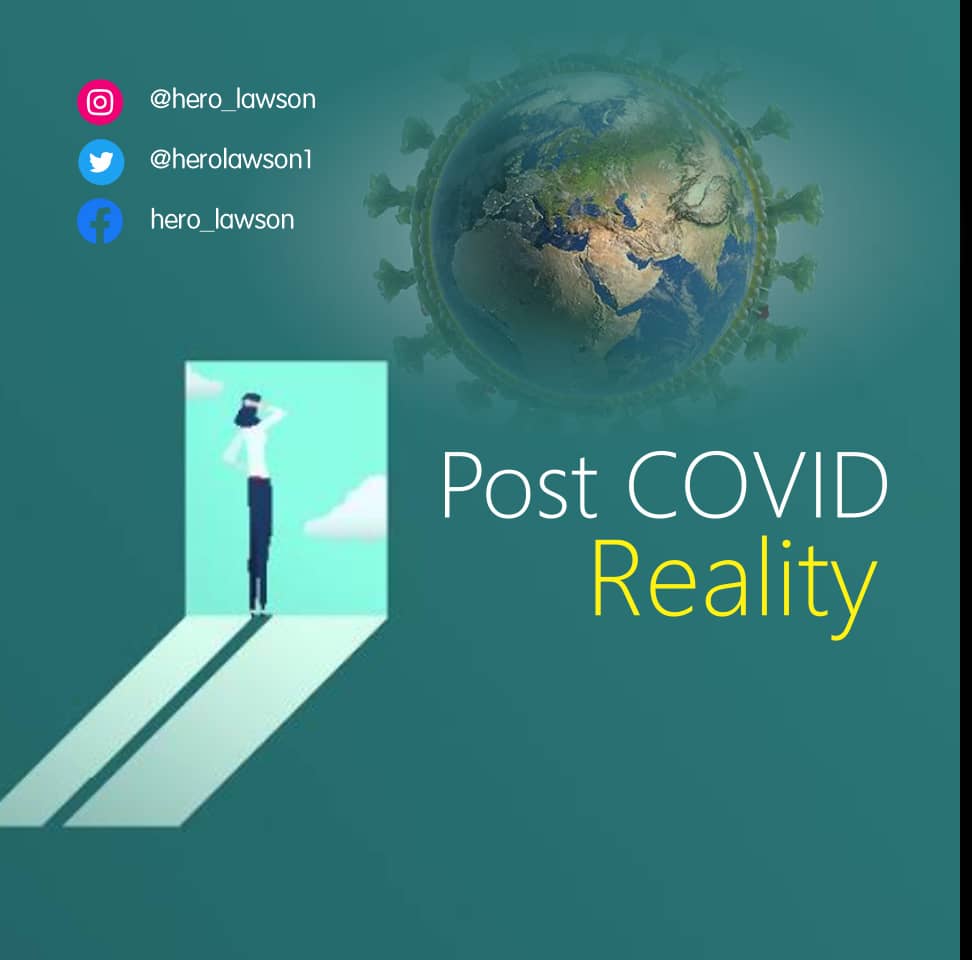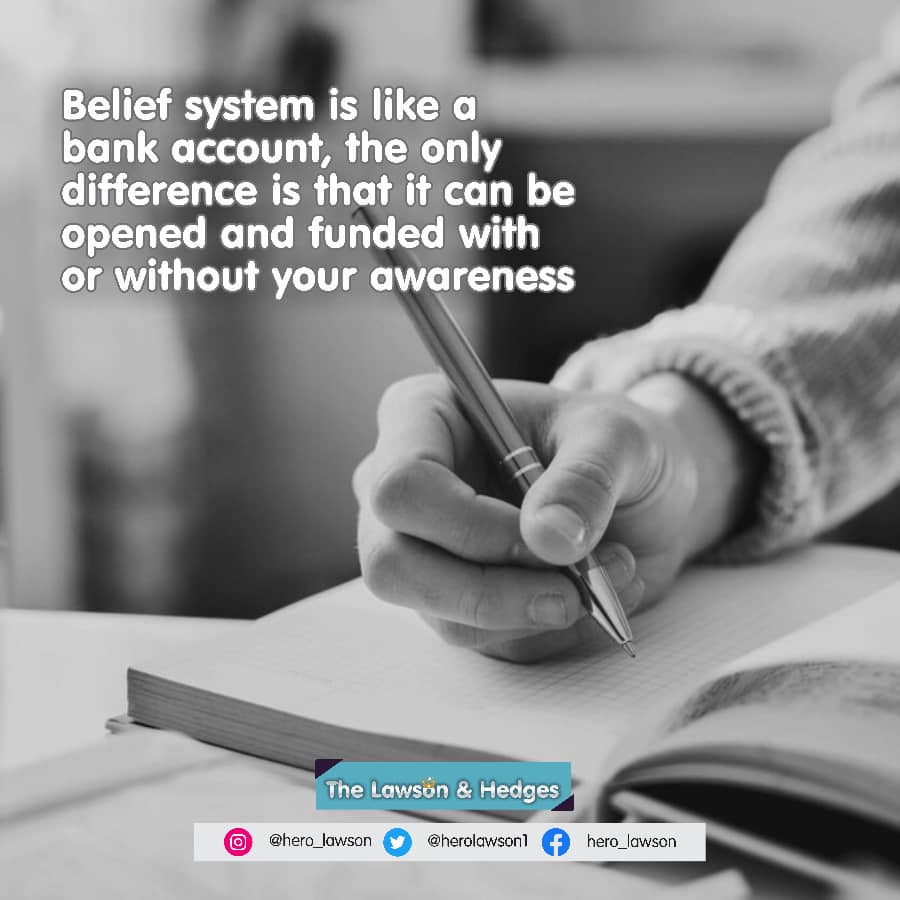
Why you Hate your Job
Quote: "How we spend our time is how we spend our life"
HERO LAWSON
Our job is the highest consumer of our time. Out of the 24 hours in a day, we spend an average of eight (8) hours daily working. So, if someone works for twenty-five (25) years period, spending an average of 8 hours daily, the person actually spent more than eight (8) years on the job. Now, we are just counting the active hours spent on the job because he can actually carry over some work home. A man does not have a particular time for his job because every time is for the job.
Imagine you hate that job. It means you are in perpetual self-slavery with a dangerous after effect. To hate means to abhor - shrink back in horror. If you hate your job, quit or find a way to love it.
Why we work
We work to express our deepest personality and find fulfilment through a meaningful contribution to the world. This is all encompassing and satisfies our deepest needs. Salary is just a part of the benefits, it is not the whole of it. If you do not unlock your full personality into the job, it can feel so stressful and the question would be, why would you give your all to a work that cannot give you back in all?
Four Categories of Workers
1. Those who work for the money (survival)
Money is a store of value and your pay cheque is a reflection of the value placed on you by your company. You may think you worth more than that however, the company decides what they can afford.
This category is need driven and they are still on the survival mode. When they stay here for a while, something in them will want more.
Question: do you know how your effort is progressively improving the vision and mission of the organisation in which you belong?
It is very important you know what you are bringing to the table in exchange for the cheque you are requesting. Most employees shy away when they are to name their price. Yes, we know that the company has a bench mark already but you can negotiate it up if you know your game. What will you do if the pay system doesn’t reflect the level of your contribution? What would your choice be? If you are paid less than the level of expertise you bring on board, then you need to design your exit before you hit the wall.
Needless to say, there are two sets of people in the society:
- The unemployed - they don’t have a platform to express themselves in return for earnings to meet their needs.
- The unemployable - This set does not have what it takes to contribute to the vision and mission of a company. Note, you are paid for your contribution.
2. Those who are Paid well but not Treated Kindly
This set of people are paid well but their is no respect for their person. The boss relates with them based on his/her mood. This kills creativity on the part of the employee because it is not known what to expect thus creating imbalance.
Money cannot be the only motivation for a job hence, you find people prefering to work for a company that pays little but improves their self- image. Inasmuch as money is key, humans cannot maximize their true potential if their self-image is constantly under attack. There are languages that should never be used on an employee and the working environment and company policy should reflect self- respect.
3. Those not Used Creatively
Machines cannot replace humans. Some are treated fairly and paid handsomely but then their opinions are never considered. They are expected to do exactly what they are told and enjoy the benefits already in place.. Some jobs are purely operational and can be lost if one attempts to introduce something new and different from the existing culture.
Every individual has a mind print - a creativity that is unique to them. You cannot teach creativity because it is inbuilt. However, you can provide an enabling atmosphere to stimulate it. If an employee cannot express himself in creativity, something in him dies.
4. Those who Give Meaningful Contribution
This set of people wants to know that they are making a difference. How do I connect the job I do to a meaningful contribution to the world such that when history is being read, I can feel honored that I was part of it? A terrorist can believe in a suicide mission because of the orientation he's been given that he is involved in generational history.
The four parts of the whole person - the body, mind, heart and spirit must be involved. If you neglect any one of the four parts of human nature, you turn the human into a thing, and what do you do with things? You control, manage, carrot-and stick them in order to motivate them. Underusing human capital will soon be part of charges against employers. A work policy should consider the totality of an individual as work is everything that takes every time.
There is a vacuum in man that longs for fulfilment. He wants to know that his words count and his short life is achieving something more lasting. How long one's work is remembered is how deep one's contribution was.
Why Some Resign
People resign from their job when there is no longer motivation or they feel they are not giving their best. People don’t just quit their job because they are tired, it’s the work environment that stiffens them and makes them quit because it is not all encompassing. If you have a company where people do what they are supposed to and are allowed to take initiative without bottleneck supervision, you are on your way to greatness and legacy. When the totality of a being is not factored in when designing a work policy, we stiffen ingenuity. Although some will fight for freedom or embrace the idea of quitting to start something of their own where they can give their all, many will tolerate the environment but their ingenuity will die off.
Still, some class of individuals already have the blueprint of their lives and as such never try out several options before getting it right. They just follow the blueprint.
Meet Victor kwesi.
A young man that took a bold step to travel the road less travelled because he was sure of where his life was headed and stepped out on time.
Interviewer – Hero Lawson.
Question 1
Did you look for a job before becoming a tailor?
Victor kwesi
No I didn’t bother looking for a job because I already to some extent figured out a little of where my life was headed in relation to what I had passion for.
Question 2
What influenced your choice to become a tailor?
Victor Kwesi
I had a whole lot of influences on the choice of my career but mainly I would say the environment basically, because oftentimes if not always, the environment we find ourselves growing in has a huge impact on what we tend to develop passion for. Our minds are enriched with the energy of that which we are experiencing always. So mine, being that I grew up in aba, a town where craft is the order of the day and tailoring is prevalent, I found myself loving art and loving to create and got attracted to fashion because it involves creating.
Question 3
What did you study in school
Victor Kwesi
I studied psychology.
Question 4
How does that connect to your profession now?
Victor Kwesi
It’s highly connected to what I do in the sense that psychology is basically the scientific study of human behaviour. In my craft, I deal with people and to make profit in what I do and to be top notch in my craft, I need to have a high emotional intelligence level. It is what enables me to understand my clients and give them the best. Emotional intelligence is psychology. If I’m able to relate with my clients well and have a good relationship with my workers and a good self-awareness, it will affect my productivity both internally with my workers and externally with my clients.
Question 5
What kind of tailor are you and what makes you unique?
Victor Kwesi
I am not just a tailor. I am a creator. I create styles, comfort and elegance. I create smiles and high esteem. All these are well crafted into my designs.
Question 6
What would you love your life to depict at the end of the day?
Victor Kwesi
I want my life to depict fulfilment.
Conclusion
Everyone is looking for the highest expression of their being and if you can find something that brings out the best in you, it will surely give back to you everything.
Leave your comments below and let me know why you hate your job and what makes you/your brand unique.







Adewumi
First I must appreciate you for sharing the part of the depths of your knowledge with an heterogeneous audience like us. Moreso, I feel this is a wake up call for everyone who is going through some sort of indecision of what their life's work will be and also how to identify and express themselves through their creativity which should be their work.
Hero Lawson
Thank you Mrs Lawson.